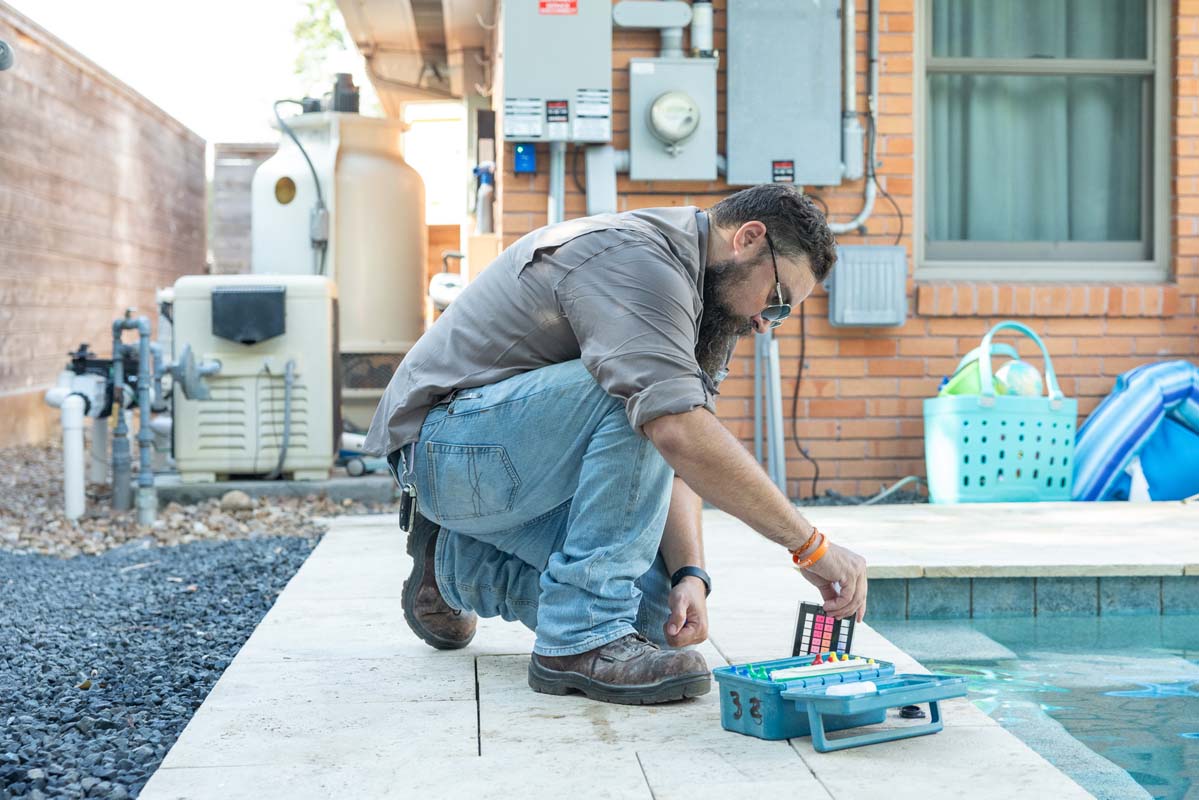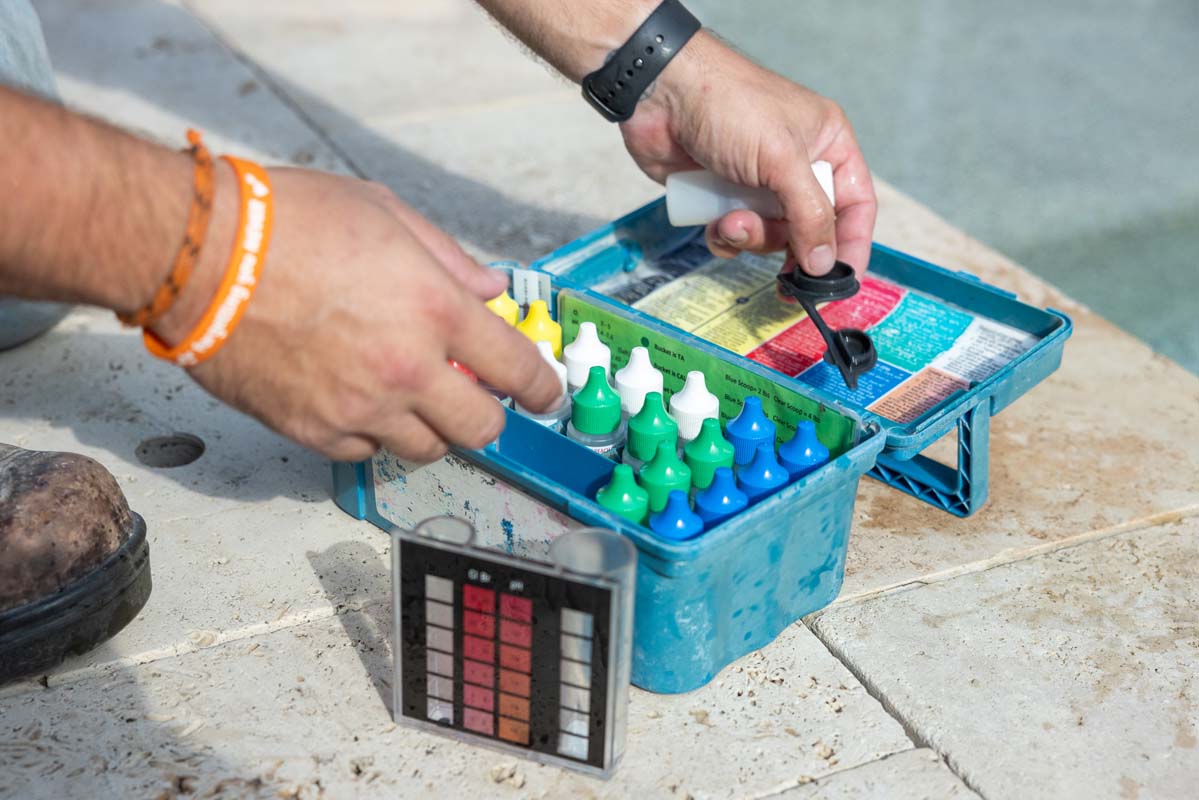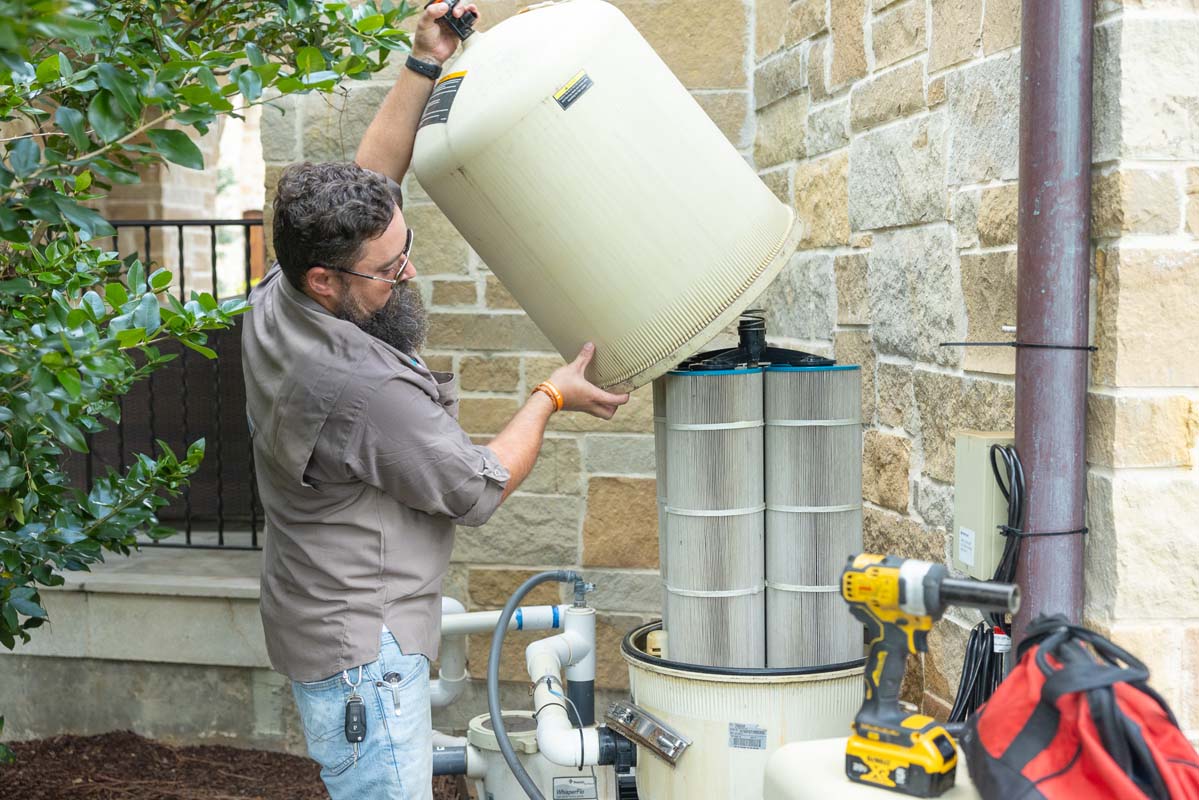Are you adding over two inches of water to your swimming pool every week? Do you think this is normal for your pool to lose this much water to splash-outs and evaporation?
Experts will tell you it’s not normal. While losing some water is absolutely normal, losing over two inches of water a week is abnormal. In fact, you may have a leak – and that demands your immediate attention.
Read on to find out how to locate a leak and stop it before it gets worse.
How do I find pool leaks?
The most common causes of pool leaks involve deterioration and malfunctioning of plumbing components, accessories and fittings. Although adding water to your pool every week is an easy and cheap method for keeping your pool full, it will inevitably cost you more when you are forced to seek swimming pool leak repair.
Repairing pool leaks as soon as possible not only means you aren’t wasting money on chemicals, heat, and water, but are also preventing further damage to structural components of your pool. Leaks could even wash away dirt essential for supporting your pool deck and walls.
Losing over 2 inches of water a week is not normal.

Detecting Leaks Using a Bucket and Marker
You can easily detect pool leaks using two simple items: a bucket and a marker. Here’s how to do it:
- Place an empty bucket on your pool’s second step and fill it with enough water to match your pool’s water level. Mark the level with a marker inside the bucket.
- Next, turn off your pool’s recirculating pump.
- Also, turn off any auto-refill devices connected to your pool.
- Compare the water level in the bucket to the water level in the pool after 24 hours. If the bucket and pool water have decreased but are still even with each other, this loss of water is due to evaporation.
- However, if pool level is lower than bucket level after waiting 24 hours to check, you probably have a leak.
Now, repeat the test but leave your pool’s pump on instead of off. Wait 24 hours before checking levels. If pool water level is higher than pool water that circulates under pressure, you may need swimming pool leak repair for one or more of the pool’s plumbing components.

Pool Leaks While Equipment is Running
When the filter pump is operating, pressure-side plumbing is constantly under pressure. They may open drips into your spraying gushers. Check the backwash line and waste for water that is consistently running.
If your pool is near a large slope or hill, walk down the hill and look for unusual wetness. It could indicate surfacing of underground leaking.
Keep an eye on your water level.
Water Level Stabilizes
You may be able to let your pool’s water level fall under the skimmer by closing the skimmer valve. If water level continues dropping, a skimmer leak could be ruled out.
If pool water stabilizes at any level, inspect every inch of your pool at that level. Debris may be plugging voids or cracks.
Water level stabilizing at a pool light, wall step, or wall fitting may indicate problems with those components.

Pool Leaks While Equipment is Off
Either the pool’s pipes have sprung a leak or you may have suction-side leaks. When your filter pump is running, suction-side plumbing experiences vacuum-like conditions. Therefore, air is sucked through voids that otherwise leak.
Check if bubbling air is coming out of return lines or if you have air in the pool’s pump basket.
Water level stabilizing at a pool light, wall step, or wall fitting may indicate problems with those components.
Equipment Pad Leaking
Examine the valves, heater, pump and filter. Walk around the ground carefully to detect wetness. While turning the pump off and on, check for water spraying when you turn the pump off. One or two drips will not tell you the leak’s source. If you can easily notice water loss without using buckets or markers, the leak will be at least a trickle instead of a drop.
Consequences of Neglecting Swimming Pool Leak Repair
You might think it’s just as easy and cheaper to keep adding a few inches of water to your pool every week than to make plans to have the leak repaired.
So what could happen if you don’t repair a pool leak? While it may take a while for you to notice damage, the cost of fixing pool damage could be ten times as much as the cost of paying for a minor leak repair.
Most leaks can be repaired quickly and affordably. Don’t wait until the leak has turned into something worse than a simple leak.
When a Pool is Too Far gone and Needs to be Renovated
If your pool consistently experiences significant leaks, even after repair attempts, it may indicate underlying issues with the structure or plumbing system. Frequent water loss can lead to increased maintenance costs and potential damage to surrounding areas. In such cases, a pool renovation may be the best solution to resolve these persistent problems.
Contact Manning Pool Service in Houston Today for Swimming Pool Leak Repair and Maintenance
We provide services for all your swimming pools needs – from pool maintenance repairing leaks, fixing equipment failures and renovating older pools. Summer’s here! Don’t miss a minute of spending fun-filled days with family and friends by the pool. Call us today at 713-812-9098 or contact Manning Pool Service online.
How to Detect Pool Leaks | Manning Pool Service – Houston, TX




